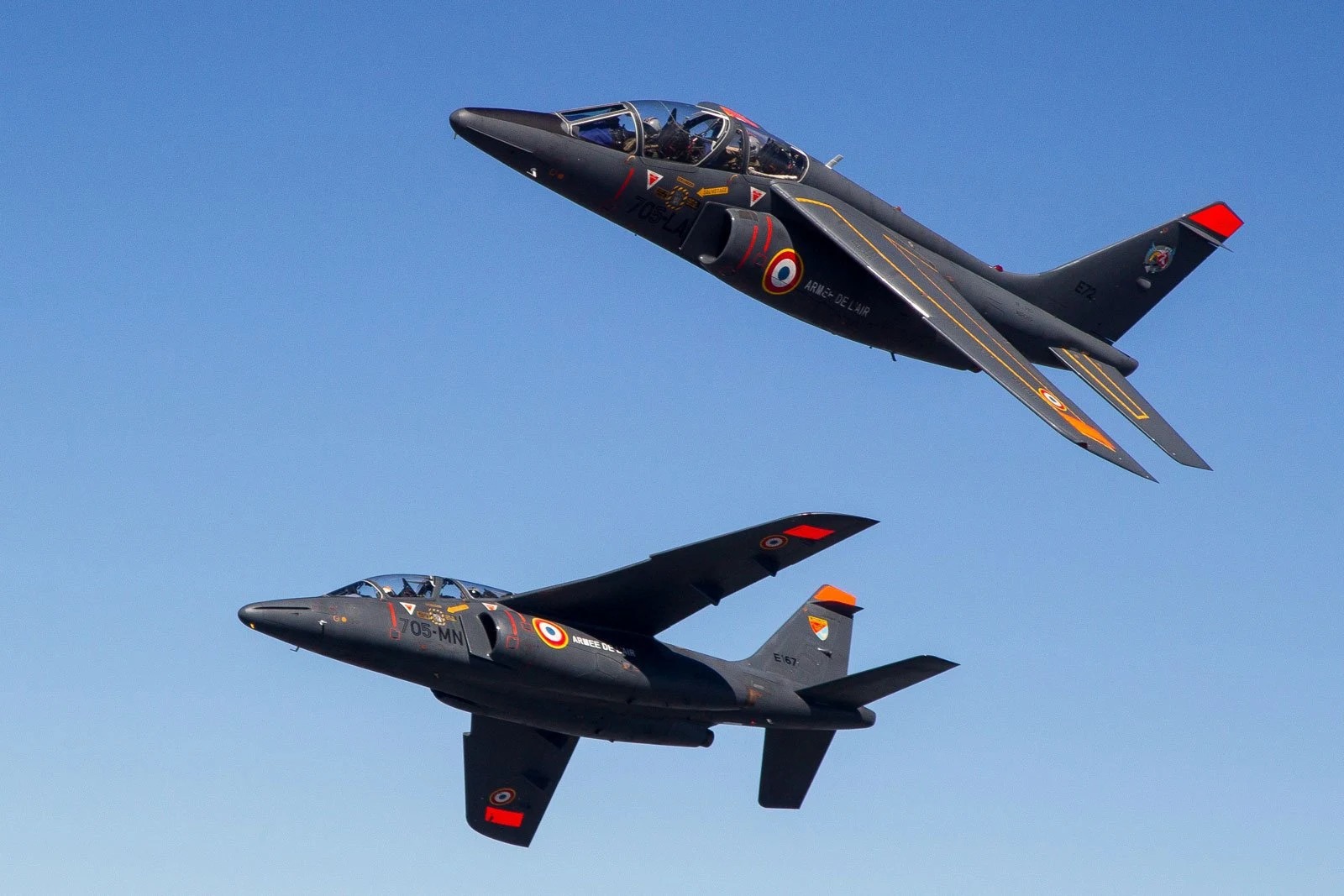France has proposed to develop or acquire a new modular advanced jet trainer aircraft with Spain and the United Kingdom and has engaged in preliminary discussions with the two.
The French Minister of the Armed Forces, Sébastien Lecornu, revealed the new modular advanced jet trainer aircraft in response to a question in the National Assembly about whether the Alpha trainer jets would be relevant enough to meet the current flight training, combat ‘red teaming,’ and aerobatic performance needs.
Designed by France’s Dassault and Germany’s Dornier, the Alpha Jets are nearing the end of their service lives, and the country is considering a replacement tied to the future training requirements of its two European neighbors.
Lecornu’s response pointed out that the PC-21 aircraft and the Alpha jet were satisfactorily meeting the basic training of the French Air and Space Force (ASF) pilots and the aerobatic performance needs of the Patrouille de France (PAF). However, aircraft for advanced operational training and “red teaming” to simulate enemy aircraft—presently being done by the existing Rafale and Mirage jets—needed replacement.
‘Talking With Spain, UK To Develop New Trainer’
According to transcripts released by France’s National Assembly, its member Frank Giletti raised the issue of replacing the Alpha jets of the Patrouille de France by 2035. The small, nimble aircraft had served with “distinction” since 1981, “representing the tricolor aeronautics abroad with their emblematic blue, white, and red streaks.”
In 2019, General Philippe Lavigne, Chief of Staff of the Air Force, said the Alpha jets could fly until 2035, owing to the arrival of the PC-21, “making it possible to extend (their lifespan) with the PAF.” But since the Alpha Jet would inevitably have to retire, Giletti asked what “essential characteristics” should the “successor possess.”

The Alpha Jet’s “unique qualities” like “maneuverability, reliability, ability to fly on its back, cost, safety, and elegance” make it “suitable for air shows.” “So, in the quest for a worthy successor to the Alpha Jet, which aircraft could both honor the heritage of the Patrouille de France (PAF) and meet modern aviation requirements? Above all, what are the Government’s precise intentions on this subject, Giletti asked.
Lecornu responded that while the Alpha Jet was suitable for the PAF’s needs and there were “no plans” to replace it until the 2040s, it was the ASF’s “operational preparation” needs that required greater attention. These are “currently carried out by the fighter squadrons on Rafale, Mirage, and, to a lesser extent, on Alpha Jet.”
“It will, therefore, be a question of replacing the Alpha Jet, used not only for the PAF but also for certain so-called ‘Red Air’ missions (playing the enemy fleet for training).” This would “partially relieve” the frontline units from flying “air opposition flight hours, particularly those which are of less tactical interest.”
In this context, Lecornu mentioned the tentative project with the United Kingdom (UK) and Spain. “Beyond 2032, the sustainability of the PAF is not called into question, and all solutions are also possible and studied, in particular with the United Kingdom and Spain.”
These two countries had a “less constrained timetable for replacing their patrol, training or Red Air fleets.” Lecornu provided no details on the status, anticipated budget, industrial construct, development timeline, or numbers of this proposed joint trainer requirement.
Needed for Training on Sixth Gen FCAS
Lecornu added that “these solutions (of needing a new trainer) consist of developing or acquiring a modular aircraft meeting both the needs of the PAF, Red Air, but also a complementary aircraft, in the light of the SCAF and its manned vector, the NGF (Next Generation Fighter).”
The FCAS is also known in France by its French acronym, the Système de Combat Aérien du Futur (SCAF). The in-planning Future Combat Air System (FCAS) project involves a sixth-generation fighter and ‘loyal wingmen’ drones.
It would be pertinent to note that the UK, Italy, and Sweden were also leading a sixth-generation fighter program called the Future Combat Air System (FCAS), distinguished by the planned jet’s name, the Tempest.
However, in December 2022, the UK and Italy teamed up with Japan for the Global Combat Air Program (GCAP), with Stockholm effectively leaving the project. Meanwhile, the NGF is one of the components of the larger FCAS/SCAF French-German-Spanish effort.
According to reports, the FCAS/SCAF includes three components: an NGF, the main sixth-generation fighter; Remote Carriers (RC), also known as loyal wingmen drones; and an Air Combat Cloud (ACC) networking capability.
- The author can be reached at satamp@gmail.com
- Follow EurAsian Times on Google News